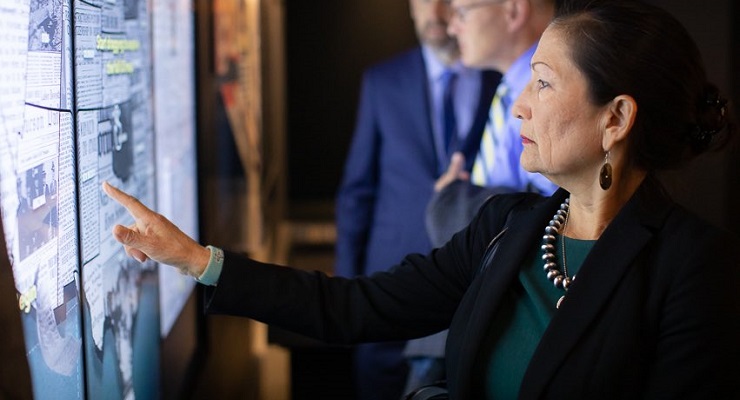
Expert Kaylana Mueller-Hsia had this important analysis in Brennan Center for Justice:
In 2016 as a member of Congress, Deb Haaland stood for four days in solidarity with protesters at the Standing Rock Sioux Reservation against construction of the Dakota Access Pipeline. Today, as the first Native American to be the secretary of the interior — the first to lead any cabinet department — she has the opportunity to support the First Amendment rights of the protesters she joined in the past.
With her authority over energy development on federal lands, Haaland can be a voice for Indigenous and climate movements facing an urgent threat: the rapid spread of laws to protect “critical infrastructure” that single out activists.
Since 2016, 13 states have quietly enacted laws that increase criminal penalties for trespassing, damage, and interference with infrastructure sites such as oil refineries and pipelines. At least five more states have already introduced similar legislation this year. These laws draw from national security legislation enacted after 9/11 to protect physical infrastructure considered so “vital” that the “incapacity or destruction of such systems and assets would have a debilitating impact on security, national economic security, national public health or safety.”
Read the full analysis here.

Leave a Reply